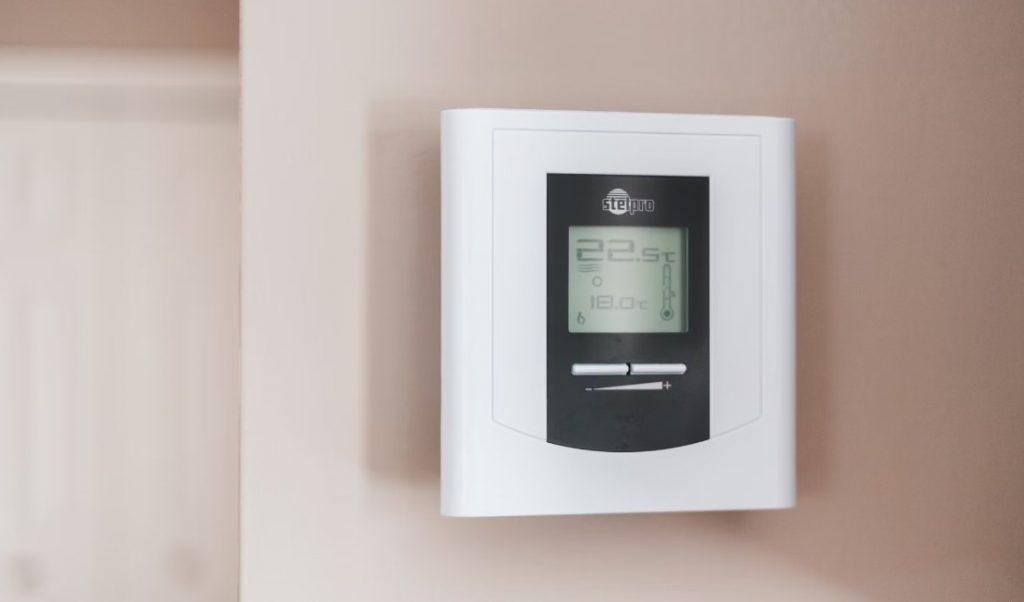As energy costs continue to rise, homeowners are increasingly seeking ways to make their living spaces more energy-efficient. The goal? Ensure comfort while keeping heating and cooling expenses in check.
In this article, we’ll share 10 practical tips to help you reduce your home’s heating and cooling costs, making it both more environmentally friendly and budget-friendly.
- 1. Use a Programmable Thermostat
- 2. Close Doors and Vents in Unused Rooms
- 3. Utilize Natural Light and Heat
- 4. Keep Your HVAC System Maintained
- 5. Use Ceiling Fans
- 6. Invest in Energy-Efficient Appliances
- 7. Seal Air Leaks
- 8. Adjust Your Water Heater Temperature
- 9. Insulate Your Home
- 10. Consider Renewable Energy Sources
1. Use a Programmable Thermostat
One of the easiest ways to save money on heating and cooling is by installing a programmable thermostat. This allows you to set specific temperatures for different times of the day, so your HVAC system isn’t constantly running at full capacity when it’s not necessary. For example, you can have it lower the temperature at night or while you’re away during the day.
2. Close Doors and Vents in Unused Rooms
If there are rooms in your home that aren’t regularly used, closing their doors and vents can help reduce energy waste. This prevents cool or warm air from circulating into these spaces, making your HVAC system work harder than necessary.
3. Utilize Natural Light and Heat
Take advantage of natural light and heat during the day by opening blinds and curtains on sunny days. This can help warm up your home without having to turn on the heater, saving you money on energy costs.
4. Keep Your HVAC System Maintained
Regular maintenance for your HVAC system is crucial in ensuring it runs efficiently and effectively. This includes changing filters regularly, cleaning ducts, and scheduling annual checkups with a professional technician.
5. Use Ceiling Fans
In addition to keeping you cool in the summer, ceiling fans can also help circulate warm air in the winter. By reversing the direction of the fan blades, you can push warm air down from the ceiling and distribute it throughout the room.
6. Invest in Energy-Efficient Appliances
When it’s time to upgrade your appliances, look for energy-efficient options that have earned an ENERGY STAR rating. These models use less energy while still providing the same level of performance, helping you save on both heating and cooling costs.
7. Seal Air Leaks
Air leaks around windows, doors, and vents can significantly impact your home’s heating and cooling efficiency. Take the time to seal these gaps with caulk or weatherstripping to prevent conditioned air from escaping and unwanted outside air from entering.
8. Adjust Your Water Heater Temperature
Lowering your water heater’s temperature by just a few degrees can make a big difference in your energy bill. Most water heaters are set to 140 degrees Fahrenheit by default, but reducing it to 120 degrees can save you money without sacrificing comfort.
9. Insulate Your Home
Proper insulation is key in maintaining comfortable temperatures inside your home. Improving your home’s insulation can prevent heat from escaping during the winter and keep cool air inside during the summer. This not only increases your home’s energy efficiency but also reduces the workload on your HVAC system, leading to lower energy bills. If you’re unsure where to start, consider consulting professionals who specialize in home insulation services in Provo for a thorough assessment and recommendations tailored to your specific needs.
10. Consider Renewable Energy Sources
If you’re looking to go even further in reducing your carbon footprint and energy costs, consider investing in renewable energy sources such as solar panels or geothermal heating systems. While these may require an initial investment, they can significantly decrease your long-term energy expenses and benefit the environment.
As you can see, there are numerous practical steps you can take to reduce your home’s heating and cooling costs. By implementing these tips, not only will you save money on energy bills, but you’ll also be contributing to a more sustainable future. So start making small changes today for big savings tomorrow!
Remember, every little bit counts when it comes to being energy-efficient. Share these tips with friends and family so we can all work towards a greener and more cost-effective future.


